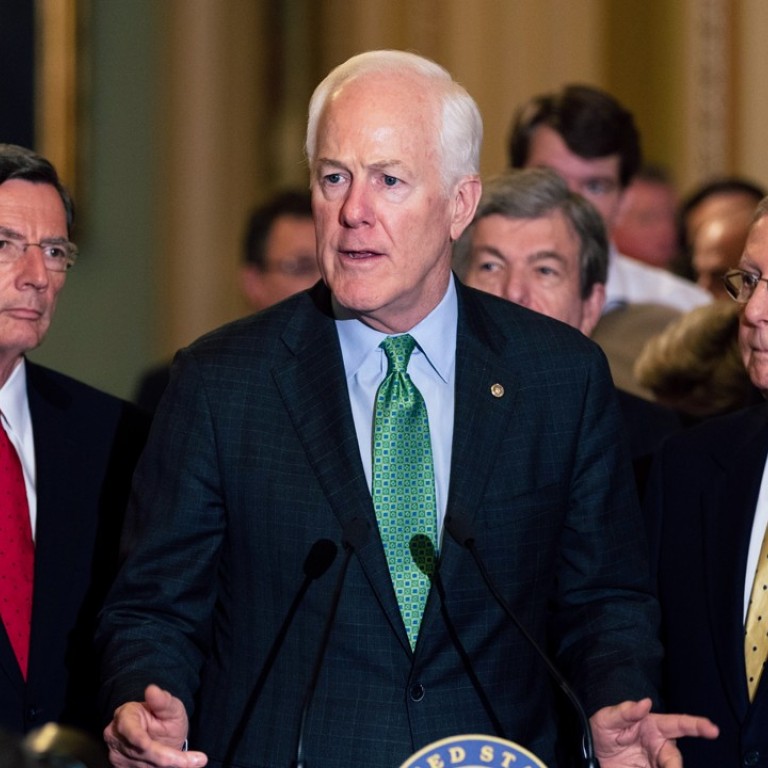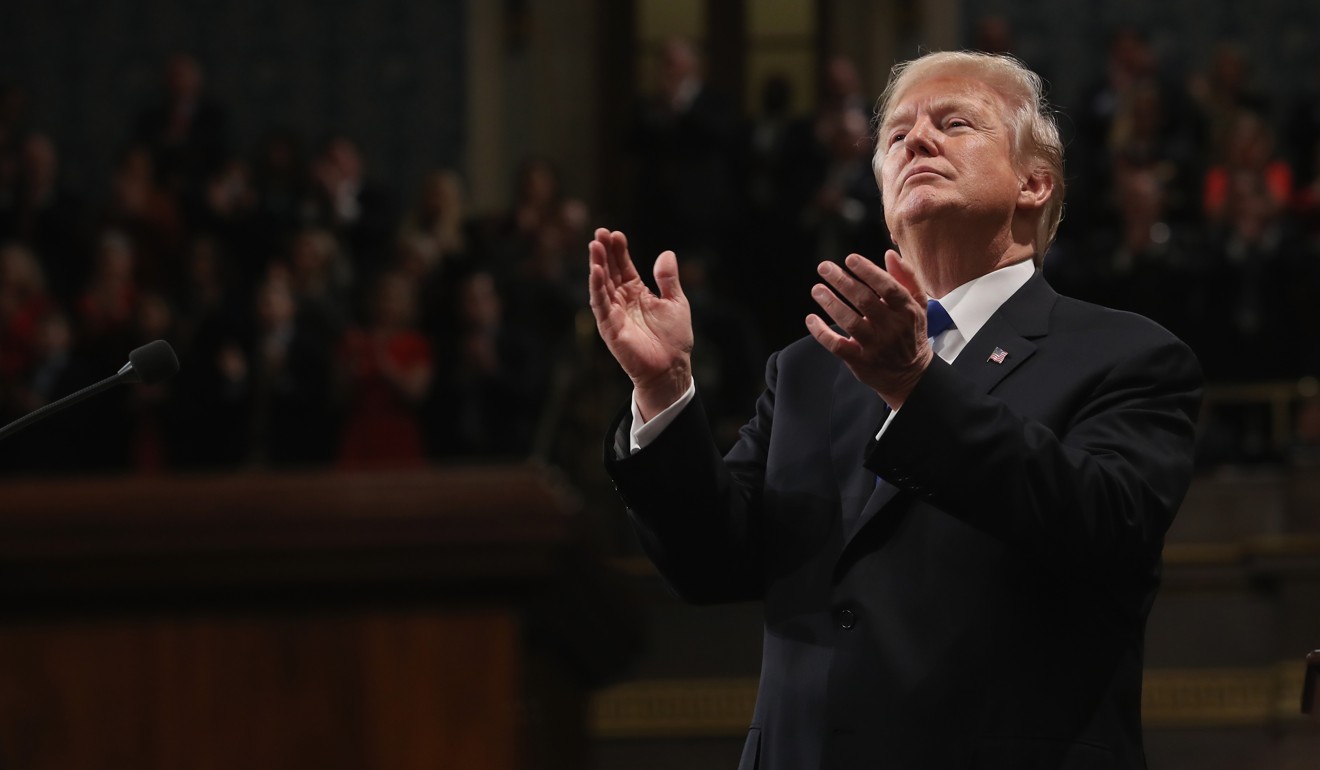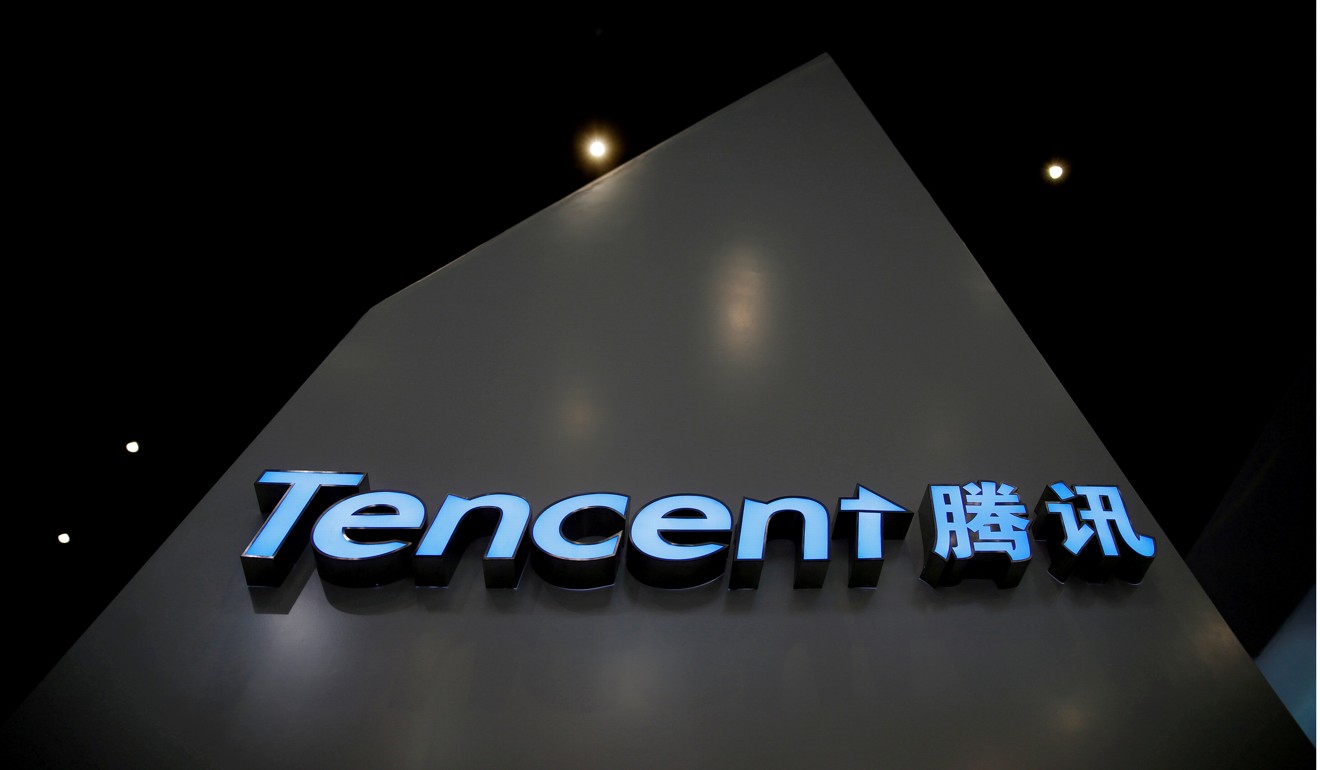
China using ‘tentacles’ to erode US security, senator warns, urging passage of bill boosting scrutiny of deals
China has ‘weaponised investment to vacuum up our advanced technologies’, John Cornyn, the second-most senior Republican, tells the US Senate
A senior US senator said China is using its “tentacles” to undermine American security, a warning delivered to cajole lawmakers to pass legislation that would step up scrutiny of Chinese investments in the United States.
“Some of our adversaries, most notably China, have altered the strategic landscape and [are] not playing by the same set of rules,” Senator John Cornyn, the second-most senior Republican, said on the Senate floor.
“China has weaponised investment in an attempt to vacuum up our advanced technologies and simultaneously undermine our defence industrial base.”
Vulnerabilities caused by these efforts include stepped up Chinese stealth fighter patrols in the South China Sea, according to Cornyn’s office. The senator co-authored the Foreign Investment Risk Review Modernisation Act (FIRRMA), with Dianne Feinstein, a senior Democrat, to halt such progress.
Cornyn said: “As [China] acquires US firms and technology and intellectual property, as well as the know-how to put it to use, the risk is that the Chinese government, which has its tentacles not just in state-owned Chinese companies, but also in so-called private Chinese firms, that it will get its hands on these capabilities and use them against us.”
If enacted, the legislation would expand foreign investment review procedures overseen by the Committee on Foreign Investment in the United States (CFIUS), which is chaired by the US treasury secretary and seeks input from the departments of defence and homeland security, among other federal bodies.

Cornyn’s warning reflects increased suspicion of China in Washington, which grew after US President Donald Trump in December accused Beijing of undermining American interests.
“China and Russia challenge American power, influence and interests, attempting to erode American security and prosperity,” Trump said during his first national security strategy speech.
Concern over China’s acquisition of US technology through legal investments and illegal means, such as cyber-hacking, started building even before Trump made his comments, partly in response to a US defence department study issued to lawmakers soon after the president took office.
The study asserted that China’s investment activity in the US “will directly enable key means of foreign military advantage”.

If passed, FIRRMA would give CFIUS the authority to review all “non-passive” investments by foreign entities. Currently CFIUS only reviews transactions that give foreign parties majority control of a US company that develops, sells or licenses advanced technologies with potential military applications.
CFIUS would also be able to suspend pending transactions and impose new conditions, retroactively, on completed transactions.
While CFIUS is designed to halt the transfer to US adversaries of advanced “dual-use” technologies – those that can be adapted for military use – lawmakers are calling for the process to cover transactions that would give Chinese companies control over large pools of personally identifiable data.
Such data, analysts and other observers warn, could make government officials and active members of the US military vulnerable to blackmail or offers to engage in espionage.

CFIUS has already become more aggressive. Last month, the body blocked Ant Financial’s proposed US$1.2 billion takeover of US money transfer service MoneyGram. The buyer had been trying to secure the approval since April.
Ant Financial is an affiliate of Alibaba, which owns the South China Morning Post.
“Growing regulatory hurdles in the US – mostly more complications getting clearance from the Committee on Foreign Investment in the United States – was the second punch to Chinese investors” looking for US assets, Rhodium Group founder Daniel Rosen said a January 17 research note.
The first punch was a regulatory crackdown on outbound investment by the Chinese government, according to the Rhodium report.

In defending FIRRMA against its detractors, Cornyn appeared to target the giants of Silicon Valley, many of whom do not want to cut off investment from China.
“Major US companies are starting to recognise the risks here as well, and several have stepped up and endorsed this bill,” Cornyn said.
“However, there’s a very small group of other US firms that are actively opposing CFIUS’s modernisation, having decided their bottom line is more important than our nation’s security.”
Silicon Valley companies have benefited from investment interest from China.
China’s four largest internet companies, Baidu, Alibaba, Tencent and e-commerce company JD.com, have invested US$5.6 billion in the US tech sector in the last two years, Flatiron Law Group LLP, which advises companies on CFIUS reviews, said in a recent report, citing CBI Insights data.
The defence department report that has motivated Cornyn and other lawmakers in Washington – titled “China’s Technology Transfer Strategy: How Chinese Investments in Emerging Technology Enable a Strategic Competitor to Access the Crown Jewels of US Innovation” – references investments by some of these companies.

“Increasingly, Chinese internet companies such as Baidu, Tencent, Alibaba and JD.com are aggressively investing in venture-backed technology deals,” the report said. “In 2015, these companies participated in 34 deals worth US$3.4 billion, up from seven deals in 2012 worth US$355 million.”
Asked for examples of Chinese cyber-hacking that have caused US vulnerabilities, Cornyn’s press office referred the Post to a CNBC report that China built its new J-20 stealth fighter with the help of stolen designs of the US military’s F-22 fighter made by Lockheed Martin.
The People’s Liberation Army Air Force confirmed last week that its J-20 stealth fighter was combat-ready after it entered military service in September.
The deployment of the J-20 and Russian Su-35 jets for drills over the South China Sea shows the air force has “significantly boosted” its capacity to handle airborne security threats, the PLA said.
Other changes FIRRMA would establish if passed include lengthening the period for CFIUS’s initial review of a transaction from 30 calendar days to 45 calendar days.

This revision would provide additional time for the Director of National Intelligence to prepare a “national security threat assessment” for each transaction.
The longer time frame and scope of the investigation would give CFIUS more discretion in determining what constituted a “critical technology”.
Passage of the bill would add new factors for CFIUS to consider in its reviews, including whether the transaction would increase the US government’s reliance on foreign suppliers to meet national defence requirements.

